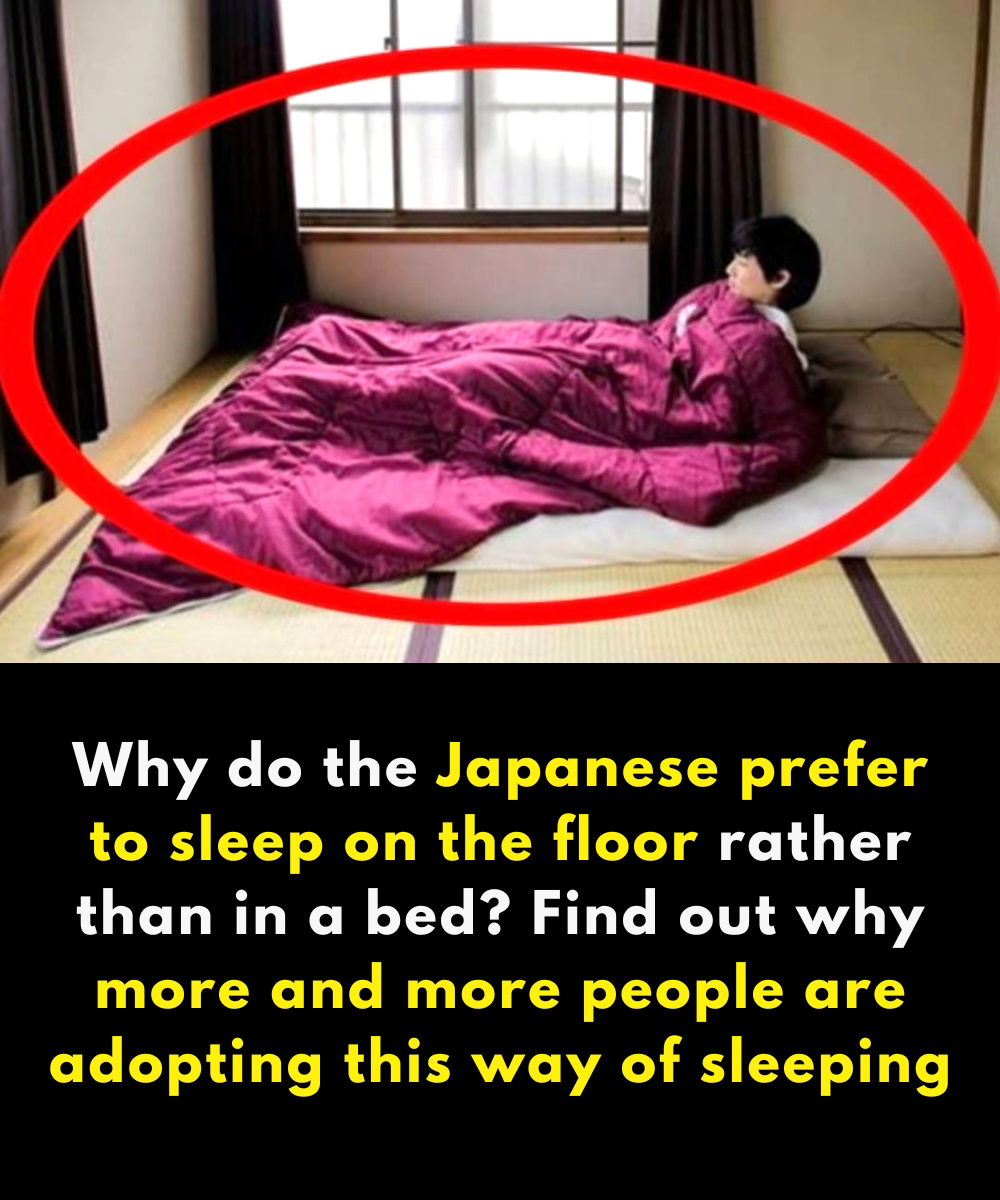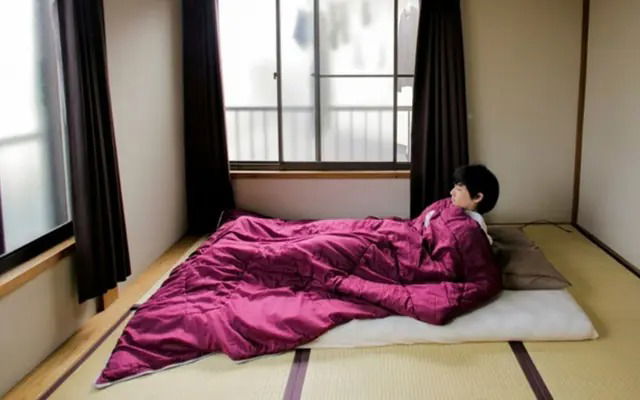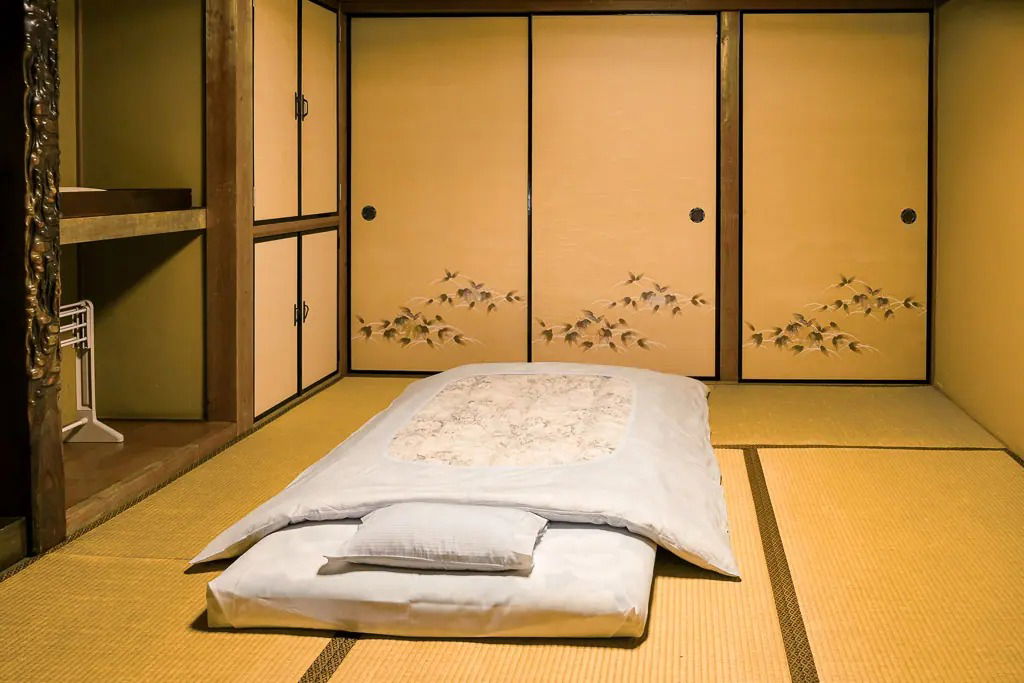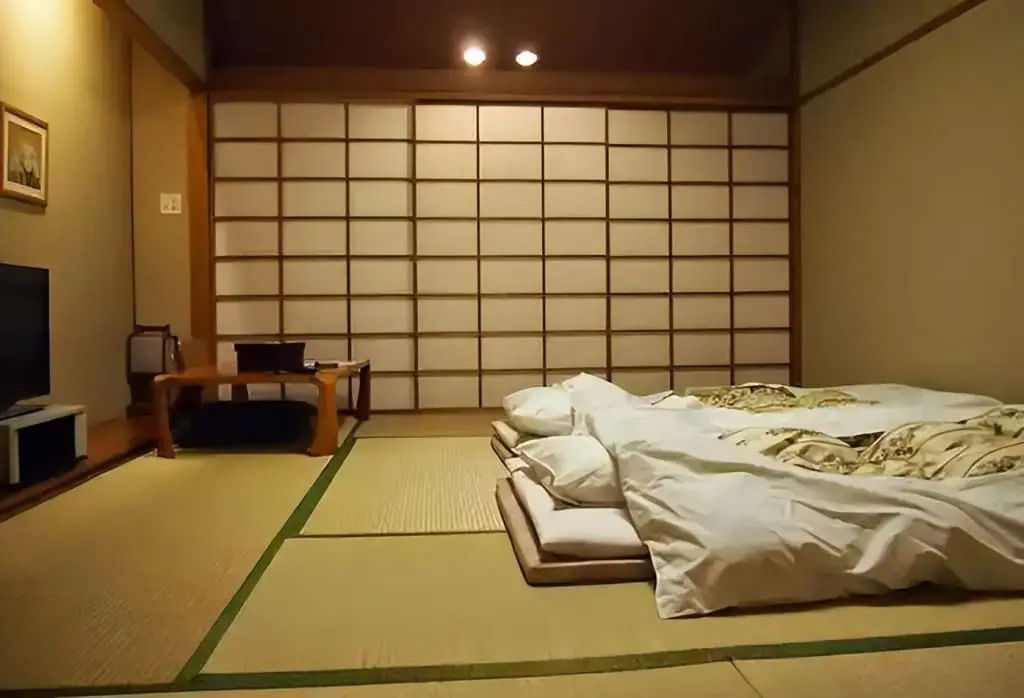
In our cozy modern homes, the thought of sleeping on the floor might sound unpleasant or even absurd. However, in Japan, this practice is not only widespread but also viewed as highly beneficial.
So why do so many Japanese households embrace this centuries-old tradition? And what lessons can we take from it to enhance our sense of comfort? Spoiler alert: it’s about much more than just saving space.
Maximizing Space with Smart Design
In Japan, where living space is often limited, maximizing every square meter is essential. That’s where tatami mats come into play.
These traditional mats, crafted from compressed rice straw, do more than just add a natural aesthetic to a room—they allow any space to shift function easily. With a tatami floor, a bedroom by night can become a living room by day.
Every morning, thin mattresses called futons are rolled or folded up, instantly creating an open, airy living area.

Many Japanese homes also feature underfloor heating or highly efficient heating systems, making these multifunctional rooms cozy even in colder months. The result is a home that feels both spacious and warm, no matter its actual size.
A Safer Option for Young Children
Many parents worry about their children falling out of bed at night. In Japan, that concern is eliminated—because the beds are often simply futons placed directly on the floor.
With no elevated surfaces to fall from, toddlers can roll, crawl, or stretch freely and safely.
This approach to sleeping is both practical and reassuring. It offers peace of mind for parents, knowing their little ones can move about without risk of injury during sleep.
Preparedness in Earthquake Zones

Japan frequently experiences earthquakes, and this has shaped its interior design philosophy. Homes are kept minimal, with limited furniture and few unnecessary objects.
Sleeping close to the ground offers a practical advantage: you’re more likely to feel seismic activity immediately and react quickly.
No fumbling to climb out of a bed or orient yourself in the dark—everything is designed for quick evacuation.
This minimalist lifestyle, born of necessity, also provides valuable inspiration for efficiency and resilience.
Hidden Health Perks
If you wake up with a sore back or find yourself tossing and turning at night, your soft mattress might be to blame.
Many Japanese believe that overly plush beds can misalign the spine and contribute to chronic pain.
Futons, though thin, are firm and supportive, promoting better posture and more even weight distribution.

Even the pillows, often filled with buckwheat hulls, may feel firm at first but provide excellent support for the neck and head.
This sleeping arrangement is especially favored by older adults, who find it easier to stand up from the floor than from a high bed, reducing the risk of imbalance or falls.
A Natural Way to Wake Up
We’ve all experienced how hard it can be to get out of a soft, cozy bed. But sleeping on a simpler, firmer surface might make mornings easier.
Without heavy layers and soft padding, your body stays better regulated overnight, helping you wake up more naturally and with fewer groggy snooze-button moments.
This can lead to more consistent energy levels and a refreshed start to your day. In a sense, simplicity in sleep leads to clarity in waking.
A Cultural Legacy of Simplicity
Sleeping on the floor isn’t just about practicality or health—it’s a reflection of Japanese cultural values.
For generations, this way of living has represented a mindful, harmonious approach to daily life. It emphasizes simplicity, environmental awareness, and focusing on what truly matters.
Perhaps there’s a quiet wisdom in this tradition. By stripping away excess and reconnecting with basic comforts, the Japanese have created a lifestyle that’s not only efficient but deeply comforting.
Maybe comfort doesn’t come from how soft or elaborate our beds are—but from how well our habits support our lives.





